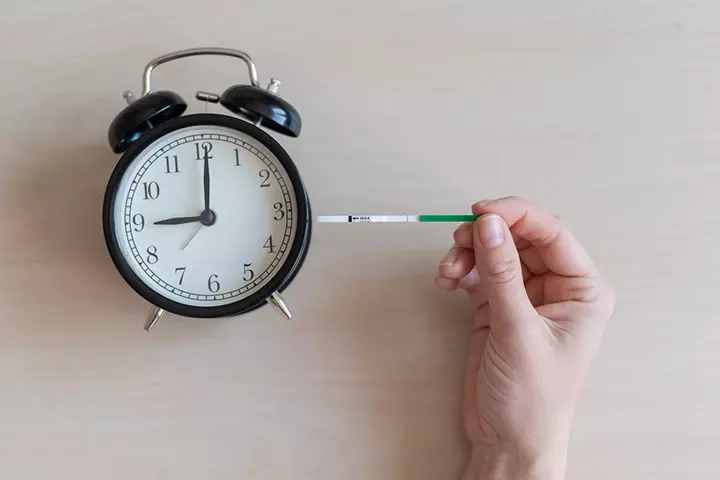

Image: Shutterstock
If you are a single woman in your late 20s, you must have been at the receiving end of some weirdly personal questions on more occasions than one.

“When are you getting married?”
“Do you have any plans of settling down?”
“Get married while you are still young and pretty.”
You would think that you would be off the hook once you are settled. But there’s no escaping from these questions even after you have tied the knot. People always seem to be interested in others personal affairs. No matter which corner of the world you belong to, you will be subjected to such questions. And if you are a married Indian woman in her late 20s, people will always be curious to know when they’ll get to hear the “happy news.”
Image: Shutterstock
Whether you are a single woman on the pursuit of finding your passion or a 35-year-old software engineer who is on her way to getting a promotion she’s been eyeing for a long time, the truth is that almost nobody escapes the pressure of the ticking biological clock. Even if we are successful and financially stable, society loves to constantly remind us of the one thing we are apparently failing at. As women, we are constantly in a battle between starting a family and wanting to focus on our career. Though we have come a long way, the question still looms in the back of our minds—“Should I hold off on my dreams for a while before it’s too late to start a family?”
But thanks to the latest advancements in science, you can now stay one step ahead when it comes to your fertility. There are a couple of tests that can be done to understand your fertility better. Certain tests, such as the Anti-Müllerian hormone test, will give you an idea of where you stand on the biological window on the whole.
Anti-Müllerian Hormone Test: What Is It?x
Image: Shutterstock
The Anti-Müllerian hormone test measures the AMH level in the blood. AMH is a hormone that is found in the reproductive tissues of both genders. The level of AMH varies depending on gender and age (1).
The AMH test can be done to check the fertility and the ability to conceive in a woman. It is also done to diagnose certain menstrual disorders and even check the presence of ovarian cancer. The Anti-Müllerian hormone test is also known by other names such as müllerian-inhibiting hormone, müllerian inhibiting factor (MIF), and müllerian-inhibiting substance (MIS).
Ovarian Reserve: Everything You Need To Know
Image: Shutterstock
An AMH test is done to check a woman’s fertility, i.e., the ability of a woman to produce eggs. As you know, the ovaries in a female body produce thousands of eggs during the childbearing years. But as a woman gets older, this number gradually decreases. An AMH test helps determine how many potential eggs a woman still has left. This number is known as the ovarian reserve (2).
A high ovarian reserve indicates a better chance of getting pregnant. This means that a woman whose ovarian reserve is high can wait months or even years before trying for a baby. Whereas a woman with a low ovarian reserve may have trouble conceiving and should not delay getting pregnant for too long if she wishes to start a family.
Uses Of AMH Test
Image: Shutterstock
AMH tests can be used to check not just a woman’s fertility but for a variety of other reasons as well:
- It can be used to predict the onset of the menopausal transition in a woman (3). Most women experience menopause in their 50s, but it can happen in your 30s or 60s. The symptoms of menopause include mood changes, stress, fatigue, hot flashes, tiredness, and dryness and itching in the nether regions (4).
- The test can help figure out the reason behind the early menopause (5).
- AMH test helps understand the cause of amenorrhea—lack of periods. Amenorrhea is diagnosed in girls below the age of 15 who haven’t started their menstrual cycle and women who constantly miss their periods.
- The test also helps diagnose polycystic ovary syndrome (PCOS), a hormonal disorder that may cause infertility in women and other unpleasant symptoms.
- It also helps monitor women with ovarian cancer and check how well they are responding to treatments.
Your doctor may recommend an AMH test if you are having trouble getting pregnant. The test can help you understand your chances of conception. And if you are planning to start fertility treatments such as in-vitro fertilization, the test can predict how well your body will respond to those treatments. If your AMH level is high, it means you have a higher egg count and may respond well to treatments.
Whether you are dealing with infertility or thinking of planned conception in the near or far future, your doctor might recommend checking your ovarian reserve by doing a couple of tests such as the AMH test to get clarity on the length of your fertility window. For someone planning to have a baby, the tests can help decide when they can start trying or if they can delay it a bit longer.
Community Experiences
Join the conversation and become a part of our nurturing community! Share your stories, experiences, and insights to connect with fellow parents.
















